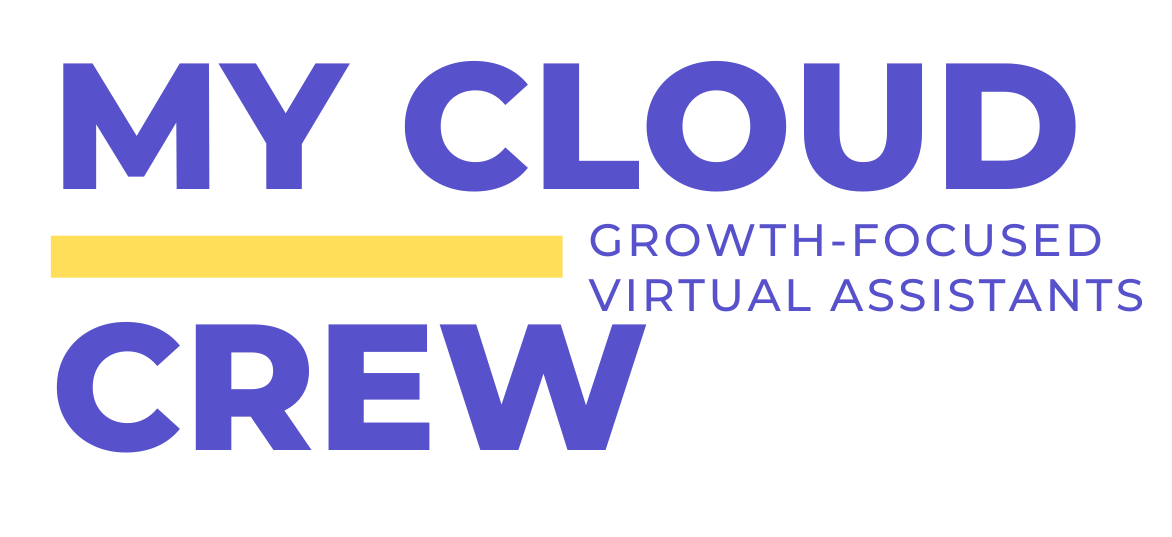Content is the reason search began in the first place.
— Lee Odden
Companies now choose to incorporate digital marketing in every aspect of their business and this has caused some stiff competition. Behind these practices involve a constant essential in every digital marketing plan – SEO.
However, most people may not be all too familiar with the concept of SEO or might still be getting started with the whole idea. If so, we have listed below a few frequently asked questions about this process and valuable information that could further elevate your digital marketing and future SEO strategies.
1. How much does it cost to invest in SEO services today?
Not all companies that offer SEO services charge the same and every detail is custom basis. SEO companies’ prices may vary depending on the quality of work that needs to be done towards your business, and how aggressive the plan must be to provide impactful results.
2. What is the difference between SEO and SEM?
Search Engine Optimization (SEO) is focused on optimizing the core of your brand‘s digital ecosystem – your website – in order to gain more traffic towards it through organic search results. On the other hand, Search Engine Marketing (SEM) involves getting traffic from both organic and paid searches. SEO is basically one of the practices involved in SEM.
3. What is International SEO?
With the description of SEO itself, International SEO is the process of optimizing your site’s search presence to a wider audience around the world. This is usually done by adjusting href tags, planning the right geo-targeting, and developing different language options for your content in order to reach your target countries and gain an even bigger chance of high search ranking.
4. How are keywords and SEO related?
Keywords are an essential part of every SEO strategy. Keywords are the words or phrases that a customer keys in when searching for a specific product or service. If you incorporate specific keywords to your website or content, it can increase the likelihood of your website ranking higher on search engine result pages.
5. How do I know which keywords will work for my business?
With this, you will need to conduct keyword research. Make sure to base the keywords you use relating to the products or services you offer or what type of business you are on, etc. Start analyzing some broad topics and narrow them down from there.
You may also opt to hire SEO agencies that also specialize in social media marketing and web development.
6. How do I conduct keyword research?
There are plenty of SEO tools that can help in form of a keyword explorer. E.g. Google Keyword Planner or Wordstream. Once you’ve finalized which tool you’d prefer to use, you can start thinking of “parent topics” that can then generate a wide list of potential primary keywords you could add to your blog or website. With that list, you can narrow down more words for more content by preference or categories and filter the rest out.
7. What does SERP mean?
Search Engine Results Pages (SERPs) are very important factors to digital marketers especially with the millions of web pages today. SERPs are the web pages that appear to customers when they search for things on search engines such as Google, Bing, etc. Every SERP that shows is unique and is customized by each search engine depending on the customer’s browsing history, location, or social settings.
8. What factors can affect your SEO ranking?
Here are a few factors that can influence your site’s ranking:
- Chosen Keywords – Your keyword selection should be intricately relevant to ensure that your site will appear on the right results page. Getting this right will also generate more interested traffic to your page wherein people will spend more time on your page.
- Page load time – If your site or usually loads a bit slower than others, you might risk losing plenty of leads to your competitor. This can negatively impact your site’s ranking and increase your bounce rate.
- Content Creation – Sharing and creating content with your expertise and value to your audience can help increase dwell time on your site which can instantly boost your ranking.
9. What is the significance of title tags and meta descriptions?
Title tags are the names that appear on your search engine results pages. These names are often optimized so your audience can get a better context of your article or site when searched for by including your primary keywords. Search engines also use these tags for relevancy. The better you optimize your title tag, the better chances you end up appearing on relevant search pages.
Meta descriptions are also essential for SEO listings. This is the description your audience sees just below the title tag. Having a descriptive meta description can help tell your audience what to expect when they enter your site. This can also help Google know the context of your page.
10. What should my website structure look like?
A well-optimized website structure gives search engines a higher possibility of finding and indexing your site pages when searched for a certain topic. Some best practices we can recommend for a better site architecture include:
- Keeping it flat and simple – Research has shown that users should be able to reach your site in 4 clicks or less, making sure you don’t overcomplicate how users can navigate their way through your site.
- Adding category pages – Organizing your content through category pages can also be beneficial in the long run. Especially when running a relatively informational site, you will need to optimize answers that are easy to find and get back to, and to avoid new pages added at random.
- Using a sitemap – Creating a sitemap can also be an efficient and effective way to view the categories and subcategories of your website. Sitemaps can also add a bit more exposure to added information on pages or videos you’d like to provide on your site.
11. Do I need to know codes to do SEO myself?
Technically, you DO NOT have to do or know code to be able to do SEO. Learning the basic fundamentals such as HTML or tracking hreflang tags will suffice. Providing value behind the content you create and making it go viral to obtain thousands of leads and quality links can be a good start in achieving optimal results. Afterwhich, you may begin to learn more about coding to make adjustments and replacements to your website.
12. Do I need to blog to improve SEO?
Blogging can essentially help with SEO. Each piece of content determines another opportunity for your business to rank higher with every target keyword used. Creating blogs can also be a way of launching and introducing new topics related to your brand, driving new traffic to your site.
13. How often should I update my blog?
Consider setting a content plan for your blogs, e.g. minimum of one blog post per week, a maximum of three to gain a higher chance of strong search results. This will also depend on how you or your writer is comfortable with writing the content yourselves.
Your blogs can also be a good source of evergreen content, content where your trusted users can always come back to that always has specific answers, also a great way to earn organic traffic.
14. Can guest blogging help me get better results?
Guest blogging is one of the most important content marketing and inbound marketing techniques used today. This is where someone reaches out to third-party websites that relate to a topic about their brand and asks to promote or publish their content on that chosen website. This technique can attract an entirely new set of audiences for your corporate brand and for you to establish a figure of credibility and authority compared to other sites. Plus, guest blogging is proven to be better off with search engine guidelines.
15. Where else can I put my own SEO keywords?
Always keep in mind the most important rule, avoid keyword stuffing. Never overuse the same keyword on your content. It is now mostly frowned upon by search engines when your target keywords are thrown unnaturally.
Aside from your blogs, you may also put your target keywords in the following categories:
- Titles
- Meta Description
- Subheadings
- URLs
- Linked Anchor Text
- Linked Social Media posts/platforms
16. Can the images on my website also be read? If not, is there any way to?
Images can she read by adding an ALT tag to the image/s you use in an article. Using the right keywords and adding captions as well to describe the image being shown on your site can also increase the chances of it appearing for an image search.
17. Should I also do PPC?
SEO, SEM, and PPC, will most likely be needing one another. SEO determines your site traffic while PPC provides the costs per click you obtain. In simpler terms, PPC helps you recognize and track the best demographic and keywords you’d like to target and is better when strategically aligned with your SEO plan.
18. Any examples of reliable tools for SEO I should start using?
We have listed down a few simple, free, and accessible tools you and your SEO virtual assistant could use to track your listings here:
- Keywordtool.io – also provides keyword ideas
- Google Analytics – complete site statistics and insights
- Moz Local Listing Score – crunches your business data on how it looks online
- Bing Webmaster – also helps you see alerts, index issues, and bug fixes
- AHREF’s Backlink Checker – a free version that shows your backlinks and domains
19. How do I build links?
Try to come up with a backlinking strategy and think, “which companies/websites would be willing to share and connect with my content?” Link building naturally also complies with search engine’s best practices. The more high-ranking and authoritative sites you collaborate with, the better quality backlinks you achieve to your overall strategy.
20. Can’t I just buy links instead?
Purchased and spammy links from unauthorized or unrelated sites are always tracked by search engines and this will definitely hurt your strategy in the making.
21. What are SEO backlinks?
Backlinks are the links you attain when your site is linked to another. Think of these links as a vote of relevancy from other sites which help search engines index your pages’ on how relevant they are on a certain search topic.
22. What is the difference between follow vs. no-follow links?
Follow and no-follow links are usually described to know more of a site’s link equity.
Link equity, commonly known as “link juice,” is described as how a link can pass authority from one page to another. With this, follow links carry link equity, while no-follow links do not.
23. What is domain authority?
Think of domain authority as an extension of link equity. This describes your site’s ability to rank in search engines. E.g Your site domain authority is determined by the link equity of all its pages if the link equity is based on the quality and number of links.
24. What is anchor text?
Anchor texts are used when you want to provide more detail to your target keywords. These are usually texts in hyperlinks found in your blog or page that can be easily found by search engines for any certain query. If your anchor text exactly matches the search, it pertains more valuable than non-matching ones.
25. Will HTTPS affect my SEO strategy?
HTTPS is a more secure form of HTTP. Choosing to change to HTTPS will let the search engine look at your page more favorably, and will recognize it as a ranking signal. HTTPS is also faster than HTTP, which can greatly improve your site’s click-through rate.
26. What are the best ways I could do to analyze my competitors?
Providing a SEO competitor analysis is never easy. You will have to think that there are also competitors outside of your business niche. A more specific search may get you better search results, but a more broad topic search will let you compete with publishing giants that revolve around your chosen industry. Focus on competitors that are around your locality. In essence, your top SEO competitors are the ones that have a high ranking on the first page of SERPs and in your target keywords.
27. What is the difference between White Hat and Black Hat SEO?
White Hat and Black Hat SEO are critical terms. White Hat initially means good, and Black Hat means bad.
White Hat SEO is the natural and positive practice you’ve used for your business strategy, and have landed you great optimal results. These would include:
- Content Creation
- Improving page load speed
- Target Keyword Analysis and Research
On the other hand, Black Hat SEO is the untruthful and irrelevant practices you use that never bring your site any good, such as:
- Link Buying
- Keyword Stuffing
- Link Spamming
28. What can SEO do for my business?
Essentially, SEO is one of the most important assets you will be needing if your business will revolve around digital marketing. Investing in keyword research, learning link building, while organizing your content plan is crucial towards boosting your online presence and bringing quality leads.
29. How can I communicate the value of SEO to my audience?
The key to properly communicating the significance of your SEO work to your audience is to be able to learn how to effectively work around the terms used in what you are doing, which not all people will understand. Do not limit yourself to answering the “whats” and the” hows,” but also why it has been beneficial to you. Share your enthusiasm and efforts with your audience in order to send the right message.
30. What are popular SEO techniques nowadays?
With SEO constantly evolving, here are a few tips we can share:
- Improving your user experience across your entire site. User experience is always key to more dwell time and quality organic traffic to your website.
- Optimize a mobile-friendly website. The majority of searches are now taking place through mobile. Google is now also mobile-first. This is a critical point as well as, for conversions.
- Optimize to Youtube SEO. Youtube now plays a great deal of relevancy when it comes to being featured on the first page of SERPs. Getting involved in video marketing can also excite your audience towards engaging with your content.
31. How often do search engines update their search equation or algorithm?
Knowing how often search engines update their algorithm can be very helpful in aligning your strategies. Research shows that Google updates their search equation 500 times per year. This will help you stay on top of these changes and make your content more sustainable to viewers.
32. How has SEO evolved?
One thing’s for sure, SEO constantly evolves. The biggest changes that occur in digital marketing will always affect SEO. From mobile-first searches to changing viral topics and social network optimizations, this just goes to show that we can expect more focused online experiences and unique content. Visual content is also more preferred nowadays by users which may cause some creators to take a few risks, but we will never know if these can be rewarded in the end. Preparing your brand for constant shifts and leveraging all kinds of content in order to sustain your brand’s digital presence and social influence is always key.

How Content Marketing is Evolving with Artificial Intelligence—and Ways YOU Can Ride the Tide

You Need to Hire a Virtual Assistant YESTERDAY—What’s Stopping You from Getting the Help Your Business Needs?

Why You Should Hire a Virtual Assistant Company vs. an Independent Virtual Assistant

What Are the Problems with AI-Generated Copy and How Can a Virtual Assistant Help?

Want a Tim Ferriss’ “4 Hour Work Week” Kind of Life? Hire a Virtual Assistant
Understanding Why You Need to Hire a Virtual Assistant in the Philippines: A Guide by My Cloud Crew

16 expert tips to boost your PPC ads

How to Create a Customer Service Protocol Document for Your VA

What is the difference between paid, owned and earned media?

Top tips for a successful video marketing campaign









